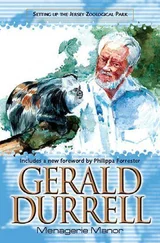Decades later, old and sick and near the verge of death, Gerald Durrell was to recall that magic landfall that was to transform his life with all the pain and longing of remembered youth. ‘It was like being allowed back into Paradise,’ he whispered. ‘Our arrival in Corfu was like being born for the first time.’
THREE The Gates of Paradise Corfu 1935–1936
A few hours later the Durrells disembarked at the quay in Corfu town, Gerald clutching his butterfly net and a jam-jar full of caterpillars, Mother – ‘looking like a tiny, harassed missionary in an uprising’ – holding on tightly to a dog desperate to find a lamp-post. Two horse-drawn cabs, one for the family and one for the luggage, conveyed the party through the narrow, sun-bright streets of the island’s elegant, faintly rundown capital, and after a short ride they reached the first stop in their island adventure, the Pension Suisse, not far from the Platia, the town’s main square, where they were reunited with Lawrence and Nancy. ‘The family crawled ashore today,’ Lawrence reported to Alan Thomas, ‘and took us in bed so to speak … The scenic tricks of this paragon of places are highly improbable, and I don’t quite believe my eyes yet.’
Next morning Mother and her brood were taken house-hunting by the hotel guide, driving round the surrounding countryside in a cloud of dust to inspect villas of all sorts and situations. But Mother shook her head at everything she saw, for not one of the properties had an essential requirement – a bathroom. In the meantime the whole family hung on at the Pension Suisse. On 29 March Leslie wrote to Alan asking him to send various newspapers and magazines – the Daily Mirror and the overseas edition of any other newspaper; Puck and Crackers for Gerry; Stitchcraft and Good Housekeeping for Mother; and The American Rifleman and Game and Gun for Leslie. At the end of the letter Mother added a postscript suggesting Corfu had so far fallen some way below her expectations.
We are still in the hotel and hope some day to be settled. Don’t believe a word they say about this smelly island. The country around is beautiful, I will admit, but as for the town – the less said about it the better. However, if you ever feel like coming out we will give you a corner. You might have to sleep with Leslie or Gerry – but one gets used to anything in Corfu.
Mother had good reason to feel dejected. They all did. They were stranded in a strange country, whose language they did not speak and whose manners they did not understand, not knowing what they were doing or where they were going, and feeling confused, anxious and querulous. Worse, the bank in London hadn’t sent any money, so they were penniless, and Lawrence’s and Nancy’s baggage hadn’t turned up, so Lawrence was shirtless and bookless. Stuck in the stuffy recesses of the Pension Suisse, they survived by borrowing from the proprietor. Margaret, or Margo, as she was always known on Corfu, was homesick and cried; and Gerry howled in unison. Only the colours in the streets, he recalled, and the look of the sea down by the old fort gave any promise or hope.
It was below the old fort during those early limbo days in Corfu town that Gerald made a crucial breakthrough in his island life, and finally entered a new dimension of existence, by learning to swim. During his brief time at prep school swimming lessons had filled him with dread and taught him nothing but a profound fear of drowning. But all that suddenly changed when he reached the island.
‘Mother and I,’ he recalled,
accompanied by a bustling Roger, would go down to a small rocky cove beneath the great sandcastle-like Venetian fort that dominated the town. It was here that I learnt for the first time what a delicious, magical element water was. At first I was up to my knees, then up to my armpits and then, incredibly, I was swimming in the blue, warm, silky blanket, tasting the wonderful rind of salt on my lips, buoyed up by the water and rid of my fear. Soon I was swimming so far out in this liquid glass that Mother used to get alarmed and run up and down the shore like a distraught Sandpiper, imploring me to come back into the shallows.
While the rest of the family hung about in the town, Lawrence and Nancy were soon fixed up with a small house on a hill near the Villa Agazini, the home of their friends the Wilkinsons at Pérama, along the coast to the south. From the hill they could look down on the great sweep of the sea and the comings and goings on the dirt road below them. A fortnight or so after moving Lawrence wrote to Alan Thomas:
I’ve told you how unique it is up here, stuck on the hillside, haven’t I? Well, multiply that by four. Today we rose to a gorgeous sunlight and breakfasted in it. Our breakfast table looks out plumb over the sea, and fishing boats go swirling past the window. There is a faint mist over Albania today but here the heat is paralysing. Bees and lizards and tortoises are making hay … God the Sun.
Shortly afterwards, while Mother was still scouting for a place to settle, Lawrence wrote again to Alan, unable to contain his enthusiasm for his new island home.
I’d like to tell you how many million smells and sounds and colours this place is. As I sit, for instance. Window. Light. Blue grey. Two baby cypress lulling very slightly in the sirocco. Pointed and perky like girls’ breasts. The sea all crawling round in a bend as the coast curves away to Lefkimo with one sailing boat on it. In the road … the peasants are passing on donkeys. Raving, swearing, crashing colours, scarves and head-dresses. To the north nothing. Ahead Epirus and Albania with a snuggle of creamy cloud clotted on them. South mists and the mystery of the other islands lying out there, invisible, on the water.
Mother meanwhile had decided to hire a car so that she and Leslie, Margo and Gerald could go and view a house in Pérama owned by the proprietor of the Pension Suisse. It was thus that the family came face to face with an outsize character who was to change their life on the island, or at any rate greatly facilitate the way they conducted it. Jostled and harassed at the taxi-rank in the main square by a crowd of grumpy taxi drivers who spoke only Greek, they were suddenly startled by a deep, vibrant, booming voice – ‘the sort of voice you would expect a volcano to have’, Gerald recalled – speaking in English, or at any rate a sort of English.
‘Hoy! Whys donts yous have someones who can talks your own language?’
‘Turning, we saw an ancient Dodge parked by the kerb,’ Gerald was to write, ‘and behind the wheel sat a short barrel-bodied individual, with ham-like hands and a great leathery, scowling face surmounted by a jauntily-tilted peaked cap.’
‘Thems bastards would swindles their own mothers,’ he roared. ‘Wheres you wants to gos?’
This was the family’s first glimpse of Spyros Chalikiopoulos, better known as Spiro Americano on account of the eight years he had spent working in Chicago making enough money to come home, a great fire-eating fury of a man with a heart of gold who was to become the family’s fixer, philosopher and friend on a virtually permanent basis. To Gerald he was a ‘great brown ugly angel … a great suntanned gargoyle’; to Lawrence he resembled a ‘great drop of olive oil’.
‘Bathrooms?’ Spiro brooded. ‘Yous wants a bathrooms? Oh, I knows a villa with a bathrooms.’
Seated in Spiro’s Dodge, they shot off through the maze of streets and out along the dusty white prickly-pear-lined road into a countryside of vineyards and olive groves.
‘Yous English?’ Spiro bawled, swivelling round to address the family in the back as his Dodge swayed from one side of the road to the other. ‘Thought so … English always wants bathrooms … I likes the English … Honest to Gods, if I wasn’t Greek I’d likes to be English.’ Spiro, it seems, was an anglophile to his very guts. ‘Honest to Gods, Mrs Durrell,’ he informed Mother later, ‘you cuts me opes you find the Union Jack inside.’
Читать дальше










